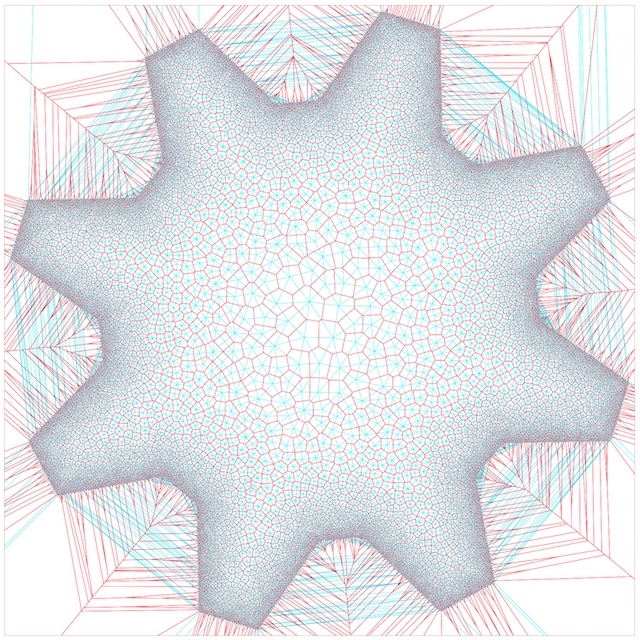[!NOTE] This is one of 201 standalone projects, maintained as part of the @thi.ng/umbrella monorepo and anti-framework.
🚀 Please help me to work full-time on these projects by sponsoring me on GitHub. Thank you! ❤️
nD Stratified grid and Poisson disc
sampling with
support for variable spatial density, custom PRNGs (via
@thi.ng/random's
IRandom interface & implementations) and customizable quality
settings.
The Poisson disc sampler requires a spatial index and we recommend using
KdTreeSet from the
@thi.ng/geom-accel
package to speed up the sampling process, but other
ISpatialSet-compatible
indices are supported as well...
STABLE - used in production
Search or submit any issues for this package
- @thi.ng/geom - Functional, polymorphic API for 2D geometry types & SVG generation
- @thi.ng/geom-voronoi - Fast, incremental 2D Delaunay & Voronoi mesh implementation
- @thi.ng/lowdisc - n-dimensional low-discrepancy sequence generators/iterators
- @thi.ng/random - Pseudo-random number generators w/ unified API, distributions, weighted choices, ID generation
yarn add @thi.ng/poissonESM import:
import * as poi from "@thi.ng/poisson";Browser ESM import:
<script type="module" src="https://esm.run/@thi.ng/poisson"></script>For Node.js REPL:
const poi = await import("@thi.ng/poisson");Package sizes (brotli'd, pre-treeshake): ESM: 747 bytes
Note: @thi.ng/api is in most cases a type-only import (not used at runtime)
Six projects in this repo's /examples directory are using this package:
| Screenshot | Description | Live demo | Source |
|---|---|---|---|
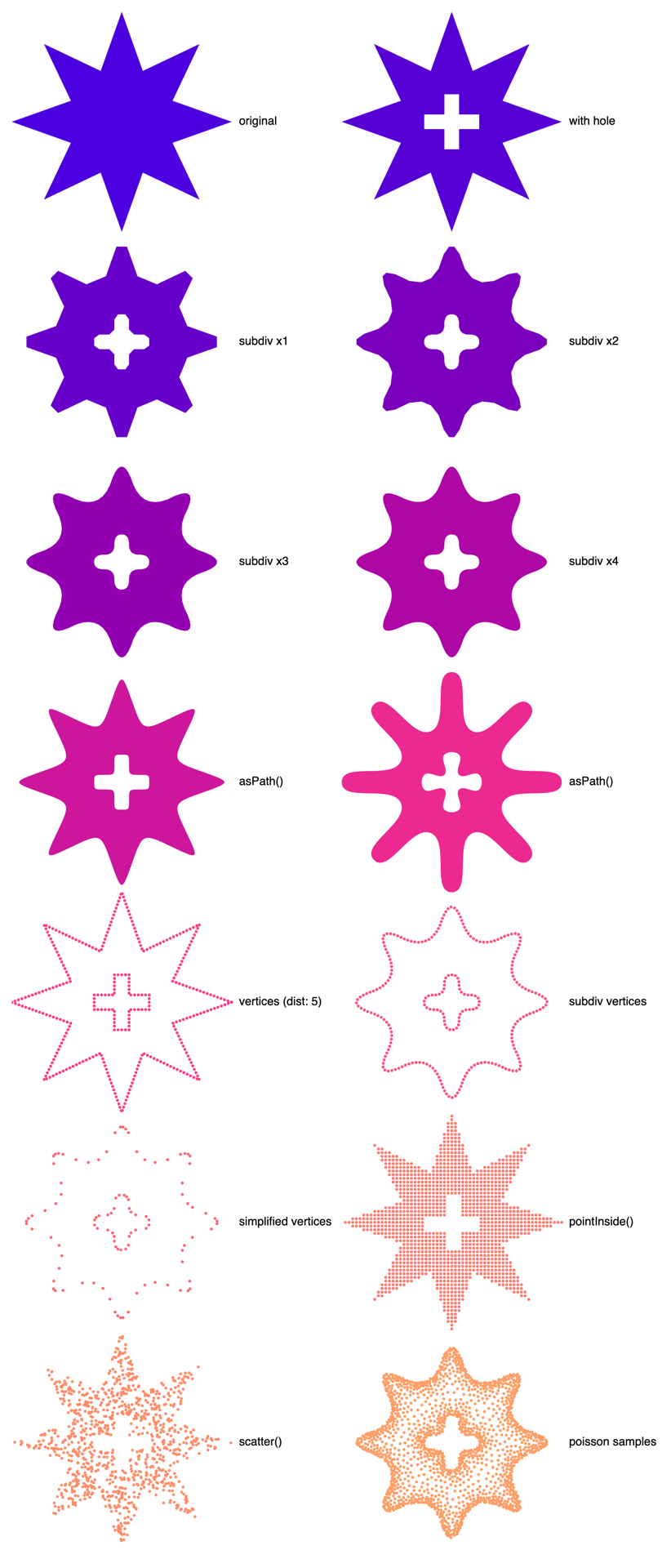 |
Shape conversions & operations using polygons with holes | Demo | Source |
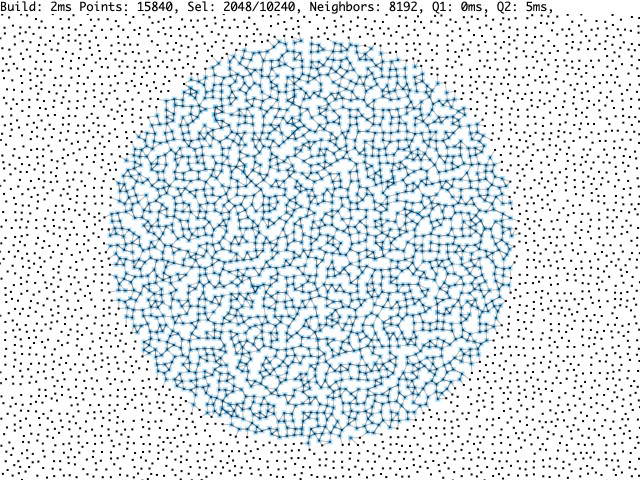 |
K-nearest neighbor search in an hash grid | Demo | Source |
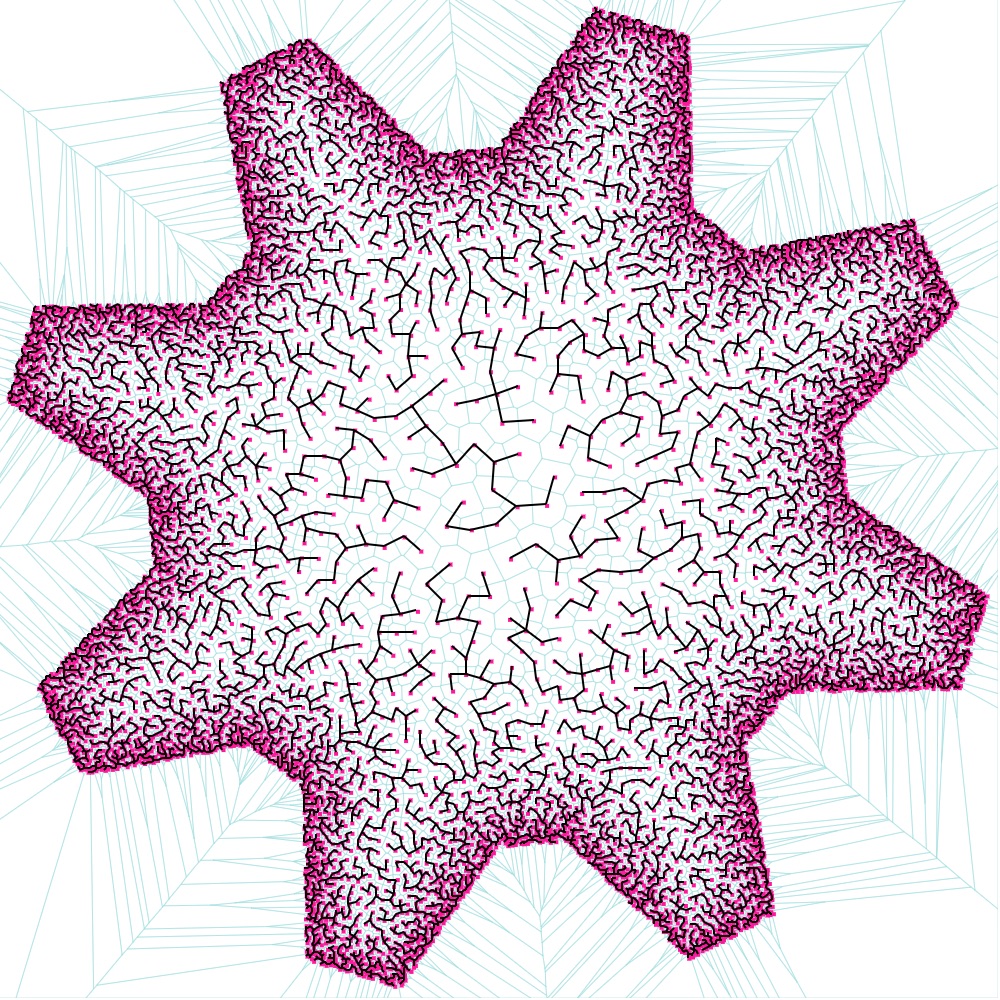 |
Poisson-disk shape-aware sampling, Voronoi & Minimum Spanning Tree visualization | Demo | Source |
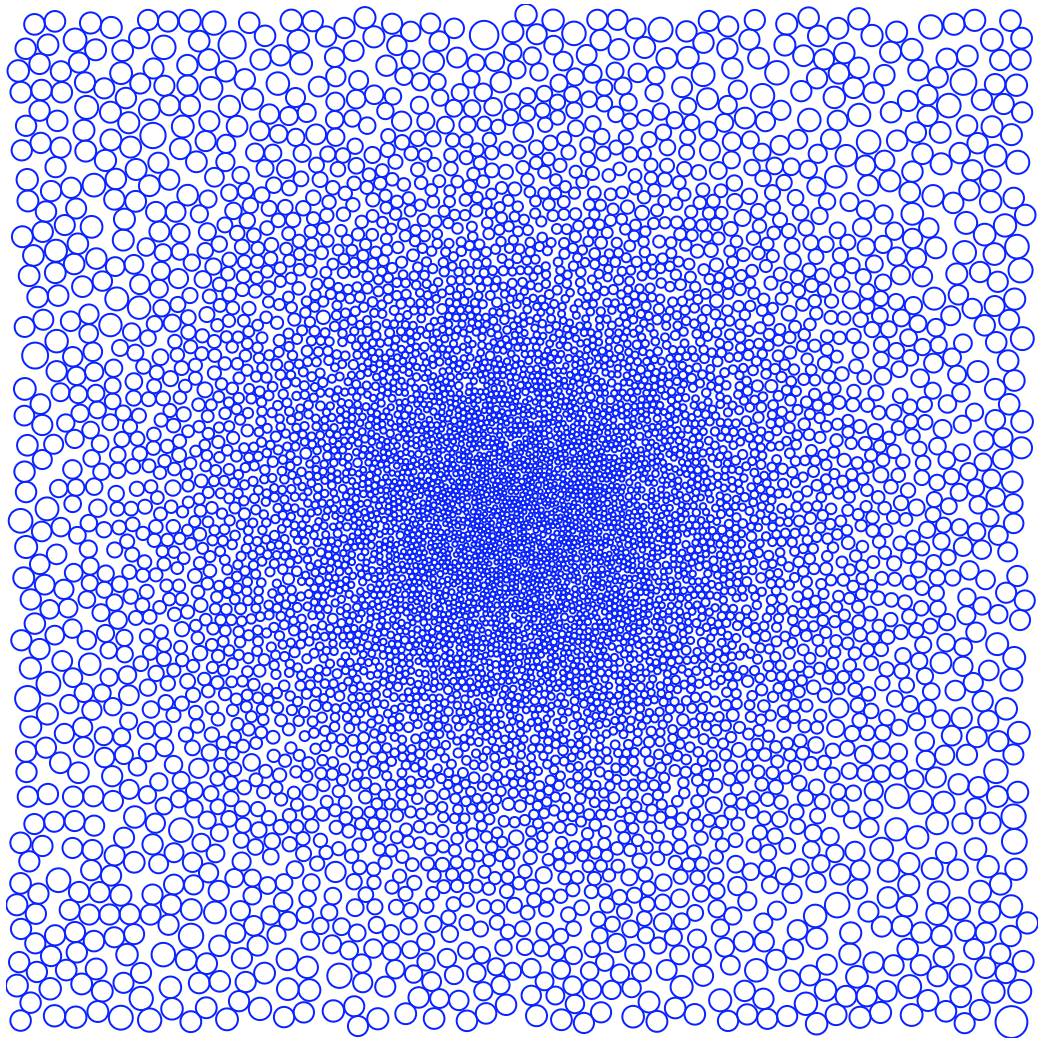 |
2D Poisson-disc sampler with procedural gradient map | Demo | Source |
 |
Image-based Poisson-disk sampling | Demo | Source |
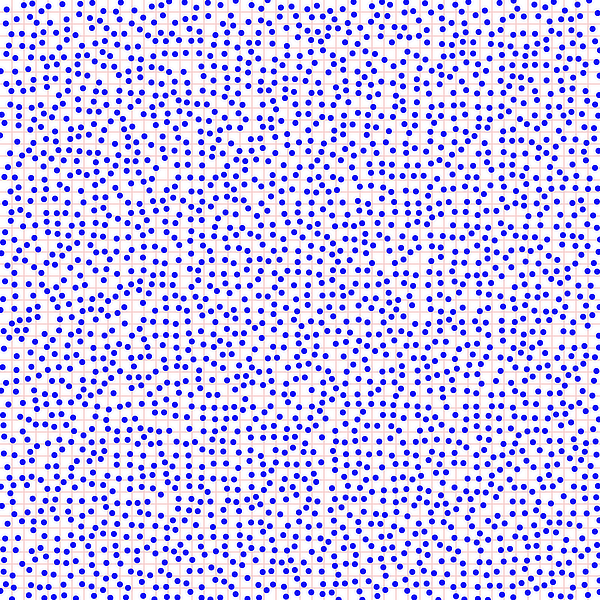 |
2D Stratified grid sampling example | Demo | Source |
The package provides a single function samplePoisson() and the
following options to customize the sampling process:
- points: Point generator function. Responsible for producing a new candidate point within user defined bounds using provided RNG.
- density: Density field function. Called for each new candidate point created by point generator and should return the poisson disc exclusion radius for the given point location. The related candidate point can only be placed if no other points are already existing within the given radius/distance. If this option is given as number, uses this value to create a uniform distance field.
-
index: Spatial indexing implementation for nearest neighbor
searches of candidate points. Currently only
@thi.ng/geom-accel
types are supported. The data structure is used to store all
successful sample points. Furthermore, pre-seeding the data structure
allows already indexed points to participate in the sampling process
and so can be used to define exclusion zones. It also can be used as
mechanism for progressive sampling, i.e. generating a large number of
samples and distributing the process over multiple invocations of
smaller sample sizes (see
maxoption) to avoid long delays. - max: Max number of samples to produce. Must be given, no default.
- jitter?: Step distance for the random walk each failed candidate point is undergoing. This distance should be adjusted depending on overall sampling area/bounds. Default: 1
- iter?: Number of random walk steps performed before giving up on a candidate point. Increasing this value improves overall quality. Default: 1
-
quality?: Number of allowed failed consecutive candidate points
before stopping entire sampling process (most likely due to not being
able to place any further points). As with the
iterparam, increasing this value improves overall quality, especially in dense regions with small radii. Default: 500 -
rnd?: Random number generator instance. Default:
@thi.ng/random
SYSTEM(aka Math.random)
import { asSvg, circle, svgDoc } from "@thi.ng/geom";
import { KdTreeSet } from "@thi.ng/geom-accel";
import { fit01 } from "@thi.ng/math";
import { samplePoisson } from "@thi.ng/poisson";
import { dist, randMinMax2 } from "@thi.ng/vectors";
const index = new KdTreeSet(2);
const pts = samplePoisson({
index,
points: () => randMinMax2(null, [0, 0], [500, 500]),
density: (p) => fit01(Math.pow(dist(p, [250, 250]) / 250, 2), 2, 10),
iter: 5,
max: 8000,
quality: 500,
});
// use thi.ng/geom to visualize results
// each circle's radius is set to distance to its nearest neighbor
const circles = pts.map((p) =>
circle(p, dist(p, index.queryKeys(p, 40, 2)[1]) / 2)
);
document.body.innerHTML = asSvg(
svgDoc({ fill: "none", stroke: "blue" }, ...circles)
);The stratifiedGrid function can produce 2D or 3D grid samples based on the
following config options:
- dim: 2D/3D vector defining grid size (in cells)
- scale: Scale factor/vector applied to all generated points. If omitted, the points will be in grid coordinates.
-
separation?: Enforced minimum distance between samples (in [0 .. 0.99]
range, default:
1/sqrt(2)) -
rnd?: Random number generator instance. Default:
@thi.ng/random
SYSTEM(aka Math.random)
import { asSvg, group, line, points, svgDoc } from "@thi.ng/geom";
import { stratifiedGrid2 } from "@thi.ng/poisson";
import { map, range } from "@thi.ng/transducers";
const W = 50;
document.body.innerHTML = asSvg(
svgDoc(
{
width: 600,
height: 600,
fill: "blue",
stroke: "none",
},
// grid lines
group({ stroke: "#fcc", weight: 0.1 }, [
...map((x) => line([x, 0], [x, W]), range(1, W)),
...map((y) => line([0, y], [W, y]), range(1, W)),
]),
// grid samples as point cloud
points(
[...stratifiedGrid2({ dim: [W, W], separation: 0.5 })],
{ shape: "circle", size: 0.25 }
)
)
);If this project contributes to an academic publication, please cite it as:
@misc{thing-poisson,
title = "@thi.ng/poisson",
author = "Karsten Schmidt",
note = "https://thi.ng/poisson",
year = 2016
}© 2016 - 2025 Karsten Schmidt // Apache License 2.0





